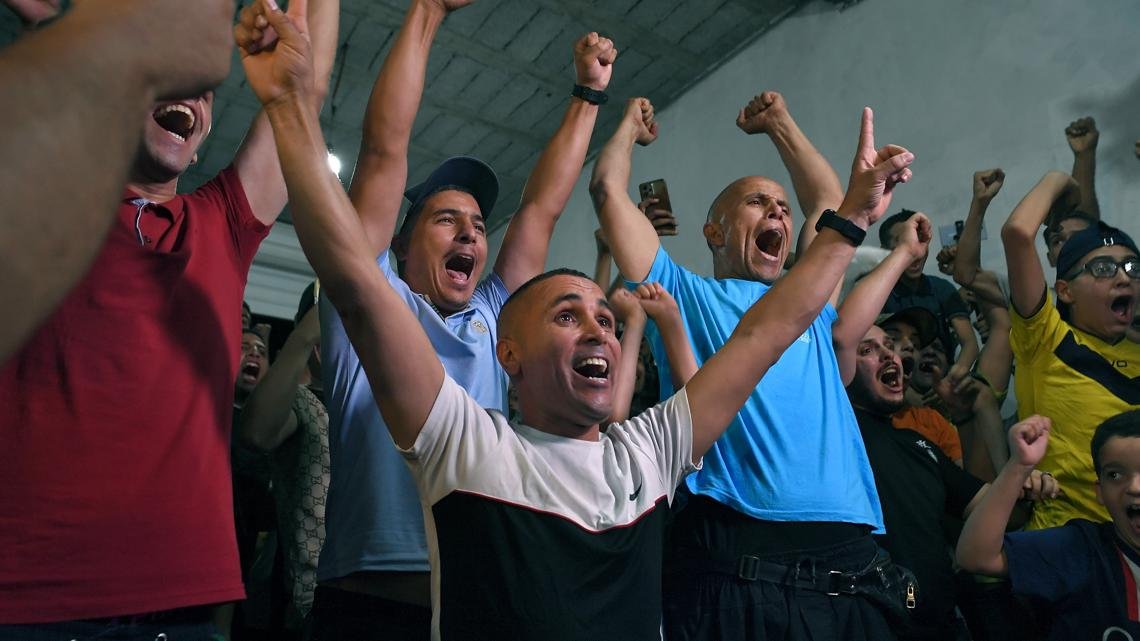General News
Algeria Unites in Support of Gold Medal Contender Imane Khelif Amid Gender Stereotypes

AIN MESBAH, Tiaret — Imane Khelif has become a unifying figure in Algeria amid her impressive journey in the Olympic women’s boxing competition. Khelif advanced to the final after a dominant performance against Thailand’s Janjaem Suwannapheng, sparking celebrations in her hometown.
In the rural town of Ain Mesbah, relatives and neighbors gathered at her uncle’s home to watch the match. The atmosphere was electric as supporters waved flags and cheered for the local hero. Even amidst the festive mood, the weight of recent controversies surrounding Khelif couldn’t be ignored.
“Between the quarterfinals and the semifinals, we were on edge,” said Rachid Khelif, Imane’s uncle. The rumors and speculation about her gender had cast a shadow but did not break her resolve. Instead, her determination carried her through, much to the relief of her family.
The 25-year-old welder’s daughter has become a national icon, praised in local media and supported across social media platforms. In Algeria, the backlash against Khelif has been viewed as an attack on national pride, not just an individual sportsperson’s identity.
“Imane Khelif, the last round against hate and racism!” touted a headline in leading Algerian newspaper Echourouk. Meanwhile, social media influencer Rifka traveled from Algiers to Paris to stream Khelif’s matches, rebuking international misconceptions about her gender.
Algerian President Abdelmadjid Tebboune expressed his support through a phone call and on social media. “Thank you Imane Khelif for making all Algerians happy,” he wrote post the semifinal win. “All Algerian women and men are with you.”
Khelif has spoken out about the emotional toll stemming from misconceptions about her gender, stating it “harms human dignity.” Her sentiments have been echoed by both family and politicians in Algeria, who regard the accusations as baseless and offensive.
Salah Goudjil, the speaker of Algeria’s Senate, also offered support, condemning the “hateful racist campaign” against her and celebrating her advancement to the Olympic final.
Khelif’s journey hasn’t been easy. Growing up in a conservative region, she faced significant challenges pursuing a traditionally male-dominated sport. She recounted to Canal Algerie how she sold bread to fund her travels for training sessions in Tiaret, highlighting a story of resilience and perseverance.
Apart from her aunt, the audience at her uncle’s house was predominantly male, reflecting traditional attitudes. Yet, young girls are actively training at her boxing gym in Tiaret, inspired by her success. “Imane is a woman. She was born a girl, lived as a girl and boxes as a woman,” said Yousra Messousa, a young boxer.
Controversies around her gender eligibility emerged last year when the International Boxing Association disqualified her from the world championships. The IOC criticized the decision, prompting accusations of a flawed and possibly biased administration within the sport.
While debates on gender identity continue to polarize Europe and the U.S., in Algeria, the focus remains on Khelif’s performance and potential at the Paris Games. Abdelkader Bezaiz, a coach, remarked that the controversy only strengthens her determination.
“All the Algerian people are happy. Everyone was waiting for this victory,” stated Walid Djobar, Khelif’s cousin. “I really hope she gets the gold medal and I have a feeling she’s going to bring it home.”
AP Sports Writer Greg Beacham in Paris contributed to this report. Metz reported from Rabat, Morocco.


















